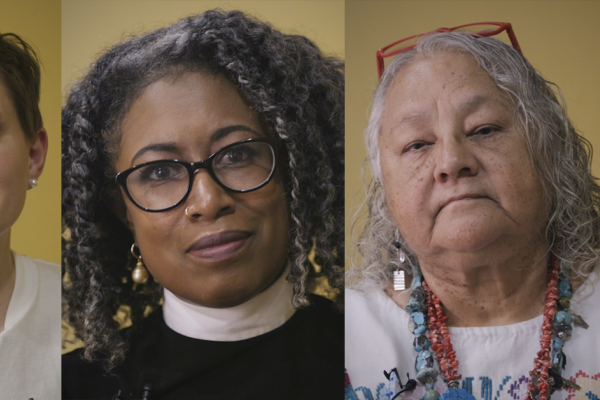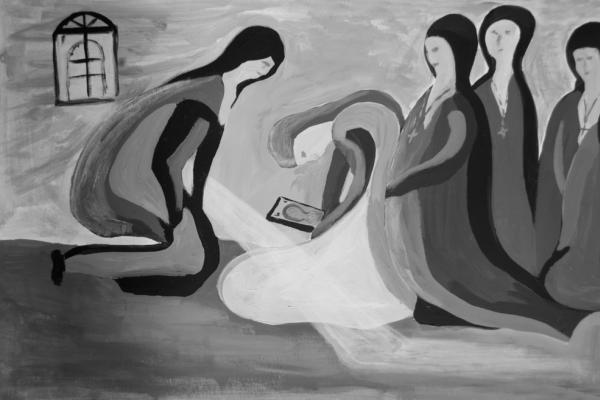Women across the world have broken open, offering their stories of abuse and assault in a shared scream, searching for a new normal so our daughters and sons won’t have to deal with the same. The response we see from men in leadership has been a series of temper tantrums at the prospect of having to change learned behavior.
Heartland: A Memoir of Working Hard and Being Broke in the Riches Country on Earth is a gripping account traversing family, poverty, geography, history, and public policy. It’s already been longlisted for a National Book Award and is a Kirkus Prize finalist. Smarsh captures the experience of poverty in the deftest of prose: “I knew how to compare prices on tags before I knew how to read words.”
I slowly came to understand that if I was going to remain a Christian, I needed to find a path that had room for the rage and grief I carried with me as a rape survivor. Rage is the only human and rational reaction to the trauma I’d experienced, and I could not smother my humanity in order to remain a Christian. It was around this time that I first read The Autobiography of Malcolm X. This past Tuesday, after we read Martin & Malcolm & America by James Cone, my seminary professor asked “what elements of Malcolm’s theology could contribute to Christian theology?” and my answer was immediate: holding space for rage.
For America’s ruling class – the lawyers, judges, doctors, and other Ivy-League graduates who run many of the institutions who shape the fabric of American life, the witness of Christine Blasey Ford against Supreme Court nominee Brett Kavanaugh was a moment of reckoning. When it comes to the issues of power, privilege, and gender that shape our behavior every day, churches, once considered some of the most potent moral forces in American society, have been largely missing in action.
Faith leaders have a message for survivors. We believe you.
Christian leaders, on the whole, have failed to address the abuse and assault experienced by more than half of all Christian believers. When was the last time your congregation dedicated a sermon or service to sexual harassment, assault, and abuse? If you are fortunate enough to have experienced such a service, you’re the exception to the rule. Despite attending all sorts of churches within a variety of denominations and despite sitting through countless sermons, I have not once heard violence against women addressed in any significant capacity. I’ve heard homilies on the Leviathan, the Nephilim, and the dimensions of Noah’s ark. I have not heard a single sermon confronting a problem that affects nearly every woman in every congregation, and around the world
2. What Do Survivors Need to Hear Today?
Start here: “You are beloved.” “You will recover.” “God is with you.”
3. Blocking Poor Immigrants Could Be Very Costly
“Worse health outcomes, especially among pregnant women. A jump in emergency room usage. More communicable diseases. Higher poverty and housing instability, including among U.S. citizen children. Lower productivity. Reduced educational attainment. And ‘downstream and upstream impacts on state and local economies, large and small businesses, and individuals.’ What are all these terrible things? They’re all potential consequences of a new Department of Homeland Security (DHS) rule—according to DHS itself.”
The American Bar Association has called on the Senate Judiciary Committee to delay the confirmation of Supreme Court nominee Brett Kavanaugh so that the FBI can investigate the sexual assault accusations against him, the Washington Post reported.
To better comprehend the rhythm of my faith, I need to dig in and do the work. Therefore, I took to Twitter to inquire about the best books on Latinx theology. What follows is a curated list of suggestions I received. These are books by diverse authors from various traditions. It is a beautiful mix. An assortment of theology that tastes like tacos, sancocho, and sugarcane.
On Thursday Dr. Christine Blasey Ford recounted her experience of sexual assault before a committee comprising mostly older white men. Women and other victims of abuse held their collective breath. The details were familiar. The resulting trauma — anxiety, fear of flying, claustrophobia — resonated. Survivors listened — and they recalled their worst experiences.








